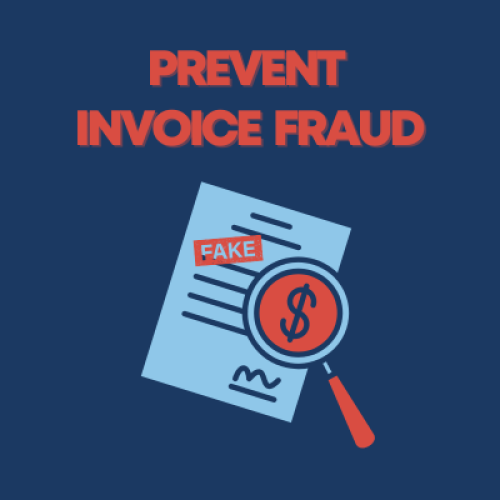Jul 12, 2024
In an era of increasingly digitized business transactions, the threat of fake invoices has surged, posing a significant risk to companies of all sizes. Fake invoice scams involve creating authentic-looking invoices that trick businesses into paying for goods or services they never received.
These scams can lead to substantial financial losses and damage a business’s reputation. However, with vigilance and the proper practices, companies can effectively protect themselves from these fraudulent schemes.
Fake invoice scams may begin with fraudsters gathering detailed information about your company, including vendor lists, purchase order numbers and the names of your employees. Armed with this information, thieves craft invoices that look remarkably similar to those from legitimate vendors but direct payments to their accounts. These can be emailed invoices, mailed paper invoices or even fake calls demanding payment for supposed orders.
Some ways to safeguard your business include:
- Double-Checking Invoice Details: Always verify that the invoice details match your records, including checking purchase order numbers, the description of goods or services provided, and the payment amount.
- Confirming with Vendors: Before processing payments, especially if the invoice is unexpected or from a new vendor, verify its authenticity by calling your known contact at the vendor’s company. Use a phone number you have on file, not one provided on the suspicious invoice.
- Educate Your Team: Awareness is a powerful tool in the battle against fraud. Regular training sessions for all employees, particularly those involved in billing and payments, can help them recognize the signs of a fake invoice and know how to respond.
- Use Digital Security Measures: Leverage technology like email filtering software to help catch phishing emails or digital payment verification to add an extra layer of security.
- Foster a Culture of Openness: Create an environment where employees feel comfortable raising concerns about suspicious invoices without fear of reprisal. Encourage them to speak up if something doesn’t look right.
Fake invoice scams can significantly threaten your business’s financial health and reputation. However, you can considerably reduce the risk of falling prey to these fraudulent schemes by implementing rigorous verification processes, educating your team, using digital security measures, and establishing strong internal controls.





